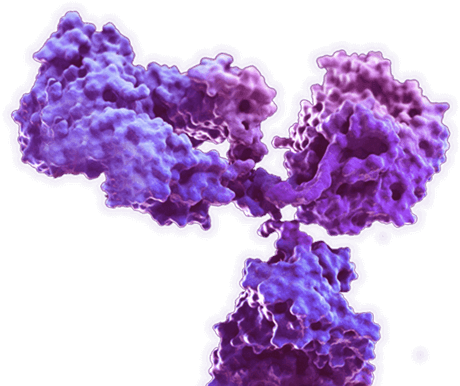Mouse Anti-CLK2 Antibody (CBMOAB-01821HCB)
Cat: CBMOAB-01821HCB
Certificate of Analysis Lookup
To download a Certificate of Analysis, please enter a lot number in the search box below. Note: Certificate of Analysis not available for kit components.
Lot Number
To download a Certificate of Analysis, please enter a lot number in the search box below. Note: Certificate of Analysis not available for kit components.
Lot Number
- Product List
- Specifications
- Application Information
- Target
| Sub Cat | Clonality | Species Reactivity | Application | Clone | Conjugate | Size | |
| CBMOAB-01821HCB | Monoclonal | C. elegans (Caenorhabditis elegans), Chimpanzee (Pan troglodytes), Frog (Xenopus laevis), Marmoset, Rhesus (Macaca mulatta) | WB, ELISA | MO01821HB | 100 µg | ||
| CBMOAB-39397FYA | Monoclonal | Rhesus (Macaca mulatta) | WB, ELISA | MO39397FYA | 100 µg | ||
| MO-AB-02473H | Monoclonal | Frog (Xenopus laevis) | WB, ELISA | MO02473C | 100 µg | ||
| MO-AB-03535W | Monoclonal | Rhesus (Macaca mulatta) | WB, ELISA | MO03535W | 100 µg | ||
| MO-AB-21514W | Monoclonal | Chimpanzee (Pan troglodytes) | WB, ELISA | MO21514W | 100 µg | ||
| MO-AB-53171W | Monoclonal | Marmoset | WB, ELISA | MO53171W | 100 µg |
Specifications
| Host species | Mouse (Mus musculus) |
| Species Reactivity | C. elegans (Caenorhabditis elegans), Chimpanzee (Pan troglodytes), Frog (Xenopus laevis), Marmoset, Rhesus (Macaca mulatta) |
| Clone | MO01821HB |
| Specificity | This antibody binds to C. elegans CLK2. |
| Format | Liquid or Lyophilized |
| Storage | Store at 4°C: short-term (1-2weeks) Store at -20°C: long-term and future use |
| Purity | > 90% was determined by SDS-PAGE |
| Purification | Purified with Protein A or G affinity chromatography |
| Cellular Localization | Nucleus; Other locations; Cytosol |
Application Information
| Application | WB, ELISA |
| Application Notes | ELISA: 1:1000-1:3000 Other applications are to be developed. The optimal dilution should be determined by the end user. |
Target
| Introduction | This gene encodes a dual specificity protein kinase that phosphorylates serine/threonine and tyrosine-containing substrates. Activity of this protein regulates serine- and arginine-rich (SR) proteins of the spliceosomal complex, thereby influencing alternative transcript splicing. Chromosomal translocations have been characterized between this locus and the PAFAH1B3 (platelet-activating factor acetylhydrolase 1b, catalytic subunit 3 (29kDa)) gene on chromosome 19, resulting in the production of a fusion protein. Note that this gene is distinct from the TELO2 gene (GeneID:9894), which shares the CLK2 alias, but encodes a protein that is involved in telomere length regulation. There is a pseudogene for this gene on chromosome 7. Alternative splicing results in multiple transcript variants. (From NCBI) |
| Product Overview | Mouse Anti-C. elegans CLK2 Antibody is a mouse antibody against CLK2. It can be used for CLK2 detection in Western Blot, Enzyme-Linked Immunosorbent Assay. |
| Alternative Names | Telomere length regulation protein clk-2; Clock abnormal protein 2; clk-2 |
| UniProt ID | Q95YE9 |
| Protein Refseq | The length of the protein is 877 amino acids long. The sequence is show below: MNLRSRLVNATERAVLFQIFKDVQNDPEKYDNAVEAICESIDYFGKFLTDSEYLTQIKPILDTQCPTKSIICFSKCLTKVSTDINTTTFRDVITMLDWLKYVVEKSLTSAICSSLKVKETDVSAVQLYREFASACSNIPEKVSNCCAKALSGEHVKYINTVKWIFKMNLVQGIQKAMLLAHDDIVTAAPFTSFYGSGGPYMKTVAEIISSGRNIDITNKDGLLVQMIEWIGSLNNFDSQWRRMMFLIFQEPTYQGIQVHESLLTTLFLISKSDQILKRCIEATDLTGTLKRVVMVKLPFQRVLKRKTIEILINFVYRTKEQFAIQLLETSVKIWSDLNYAKSAPESQERHIVRMILYLVHLFRTCSSIDWESLFLNSMDGVHCRMSMLPMYVQSGIFVNQALCKQATKHRSKTHGSDEQPPETLEENKFVSSEVGKIWFEEMTSILEHGFNSSTVKDSERVRETANEITKDDSGEEFEETNAQRLQNNKDSAAITSKNNLRLDSDDDEDFPDYQVNESEKIFKNLEIGEEPKNKVTPPAYIADAFEMLLEKEKYEVFEAAFFNITNLINRRPIGFPQIAEKLFIRILHLQNNFGTPKFKETVDEIAVACITQRPEIVPSVVRLIIAPGQGFSIKQRLLHYIHNAADGMGALDKKLEECVMAQQLRIGGPTLSIILHRTINTDYDDEDEDPHRLLVPEWRRMVDARIAANTRRIGTTREPPRAGVVNRLAQAAKYMFYPLLVLPRGENASLLGKDSDLLASLIMVASMVYVRCGVCPQIHRMSSELISYATPHRFSENAKLRTACIIAHLNVTTLLPGDLMDELFDVPALIGWFDWANSVLVNASSSQLEKDMTRQFGHSVTKHLQRYHPAVLQHQDV. |
For Research Use Only | Not For Clinical Use.
Online Inquiry

